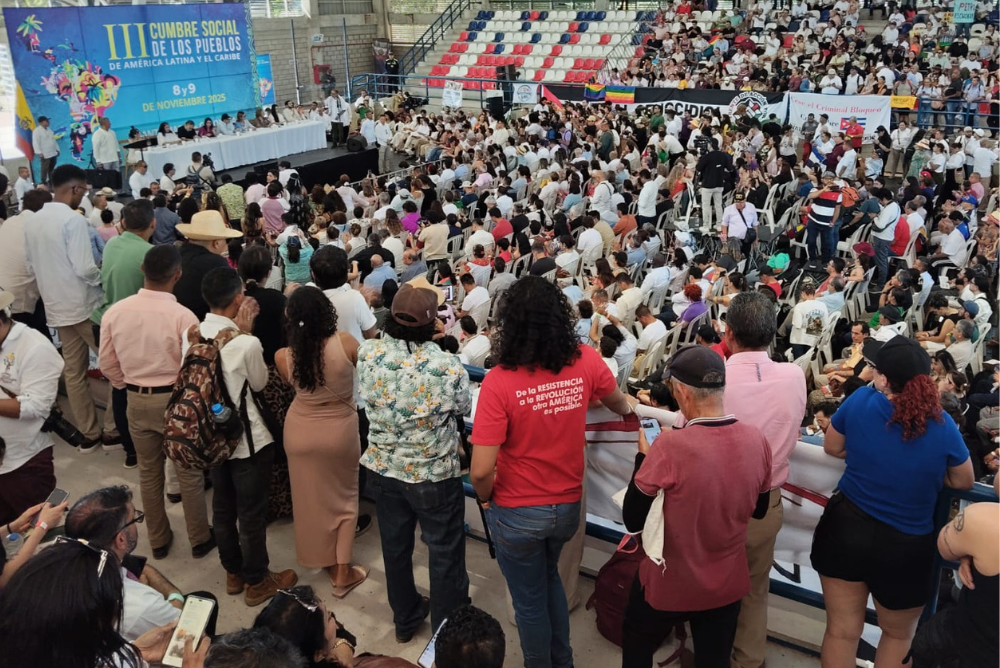Health sovereignty addressed at the Third Social Summit of the Peoples of Latin America and the Caribbean
Strengthening efforts to build health sovereignty and pharmaceutical autonomy were one of the topics discussed at the Third Social Summit of the Peoples of Latin America and the Caribbean held in Santa Marta, Colombia, 8-9 novmber 2025, in which the People's Health Movement participated alongside regional organizations and movements for the right to health.
The Social Summit of the Peoples of Latin America and the Caribbean, was a space for the plural articulation of social organizations and movements in the region to actively contribute to the consolidation of the regional integration agenda for Latin America and the Caribbean and to advance toward greater levels of participation and political influence in CELAC as an institutional mechanism of the States, from a popular, democratic, sovereign, inclusive, anti-patriarchal, and environmental perspective, with national, regional, and international reach.
The People's Health Movement, together with public pharmaceutical agencies, are tools to support comprehensive and universal health systems. The Covid-19 pandemic showed the weakness of health systems and the region's dependence on froreign technology and production.
Latin American representatives spoke of the need to increase investment in health: “We are not investing enough, and what we do invest, we do not invest well.” “We have abandoned our capacity in favor of a private market that does not work to meet the needs of the population.” “We need to talk about sovereignty in health, strengthen our pharmaceutical industry, and invest in innovation and technological development related to public health needs, as well as ensure that knowledge generated with public money remains public.” These were some of the comments made by delegates at this summit.
This Social Summit is taking place at a historic moment for the movement seeking access to medicines, bringing together organizations concerned with the same structural problem. The debates showed the importance of pharmaceutical autonomy and the role of civil society in proposing an agenda for regional governments to seek consensus.
These discussions showed that health is not only a biomedical issue, it is a social issue and cannot be seen as a business. Health sovereignty must be addressed from the perspective of the welfare state, complemented by different types of knowledge. The plenary session on health at the summit also discussed the need to have our own medicines and knowledge coexisting in an intercultural context.


